The SPAR Group has announced a series of initiatives aimed at curbing the environmental impact of plastic packaging materials. This commitment aligns with the Group’s dedication to phasing out harmful plastics and will contribute significantly to the reduction of non-recycled multi-layered materials in the ocean and landfills.
This action is necessary to avoid significant threats to ecosystems. The World Economic Forum warns that single-use plastic consumption is projected to surge from 460 million tonnes (at 2029) to 1,231 million tonnes in 2060. Only 14% of this plastic is recycled, with the rest ending up in dams, lakes and rivers. Reusing just 10% of plastic products could cut ocean-bound plastic waste by 50%.
In Africa, population growth and urbanisation are driving increased single-use plastic, leading to environmental pollution and health risks, notes the World Health Organisation (WHO). This includes freshwater contamination, microplastic ingestion in food, the promotion of malaria from mosquitoes breeding in waste, and harmful air pollutants released from burning plastic waste. Additionally, plastic, a fossil fuel byproduct, contributes to climate change.
Of more immediate concern are the reports that Johannesburg, Tshwane and Cape Town metros have less than 10 years of useful landfill life left, says Kevin O’Brien, Group Sustainability Executive at The SPAR Group. “In fact, in April last year, an EWN story reported that the majority of SA’s metro landfills are left with a one to two-year lifespan at most. This is a huge concern that needs to be tackled head on if we are to curb environmental degradation”.
Doing its part, The SPAR Group has been highly deliberate in designing for circularity and is committed to designing packaging that is reusable or recyclable and that contains recycled content.
In 2023 alone, The SPAR Group has recycled 19 thousand tonnes of cardboard and plastic through reverse logistics operations. All carrier bags are now made from 100% recycled materials, with a minimum of 70% post-consumer waste, and are 100% recyclable, diverting about 4,000 tonnes of plastic waste from landfills a year. These numbers represent a 40% drop in the in the carbon footprint of their production.
“We’re actively pursuing responsible packaging, sustainable product design and eco-conscious processes that prioritise the well-being of our planet. We’re also highly deliberate in the development of eco-friendly initiatives and alternatives, including the utilisation of responsibly sourced raw materials, all of which makes a difference in the elimination of problematic plastic”, says Kevin O’Brien Group Sustainability Executive at The SPAR Group.
Significant progress has already been made. All extra shelf-life SPAR 2L Fresh Milk cartons are 100% recyclable and crafted from 87% renewably sourced materials. These cartons also carry vital information about the circular economy, educating shoppers on how they can actively participate in recycling.
The Group’s decision to replace coloured lids with white lids on their SPAR Fresh Milk plastic bottles, making recycling easier and aligning with circular economy principles, recently earned The SPAR Group the prestigious Platinum Design Award in the SAPRO Recycled Plastics Product Award.
Brown plastic bottles are being recycled and repurposed into reusable SPAR shopping bags, woven from recycled PET into a polyester fibre that supports sustainability and empowers local communities, with a long-term vision to establish recycling stations in stores to repurpose these bags into blankets, further minimising waste.
In a partnership with Supercart, The SPAR Group has created trolleys using recycled milk bottles, diverting more waste away from landfills as The SPAR Group works towards mitigating the environmental impact of its operations.
“The SPAR Group is also one of the founding members of the SA Plastics Pact which aims to create a circular economy in South Africa that drives investment in infrastructure, supports livelihoods and job creation, and keeps our environment free of plastic pollution,” continues O’Brien.
“What is clear, is that recycling alone will not solve the plastic waste crisis. Achieving the targets that we’ve set for ourselves will mean making tough decisions and investing heavily, but we’re prepared to do this. If retailers of all sizes throughout the country would do the same, the retail sector’s contribution to plastic waste would reduce significantly and our impact on the environment would improve”, concludes O’Brien.


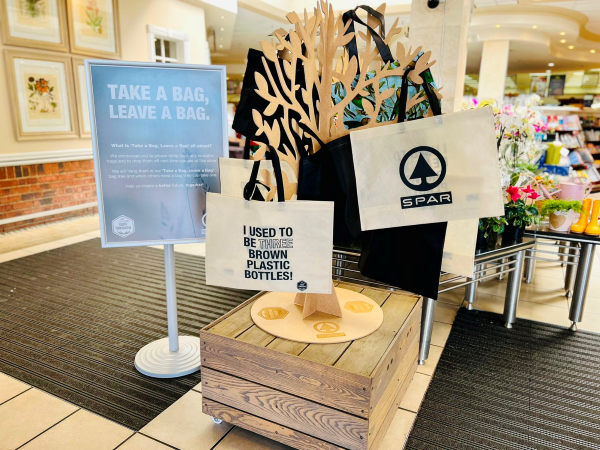
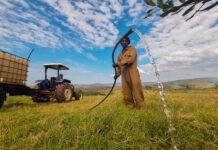
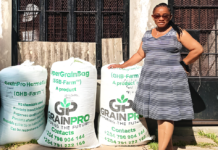
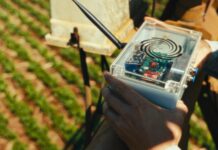
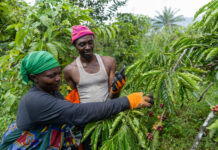


[…] News Source: farmersreviewafrica.com […]
Comments are closed.